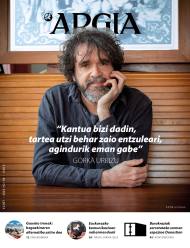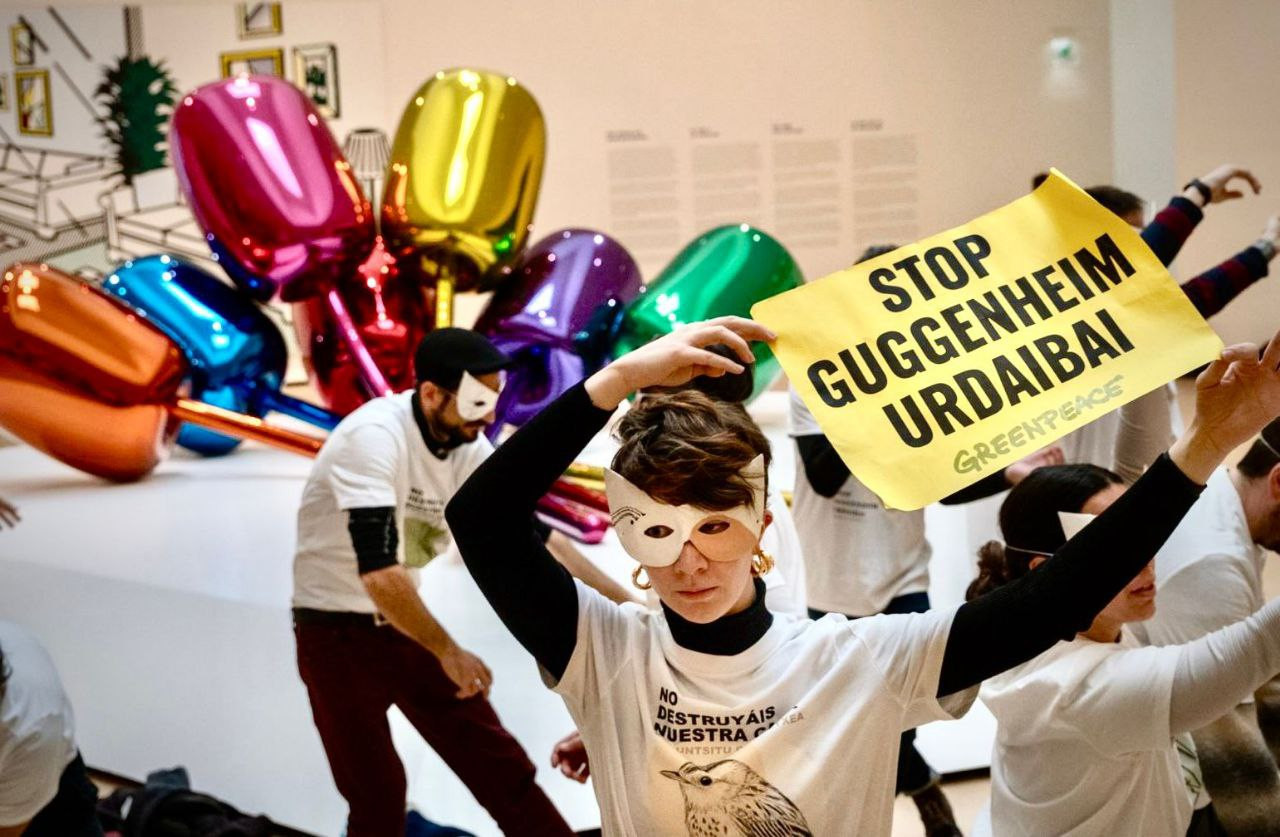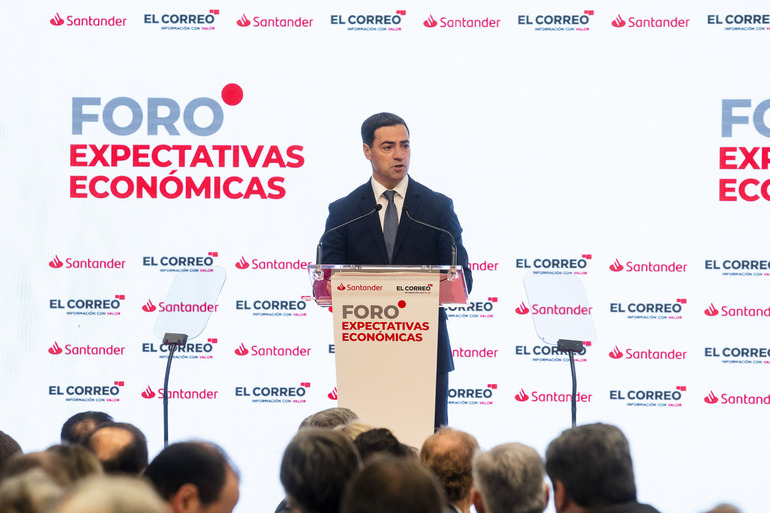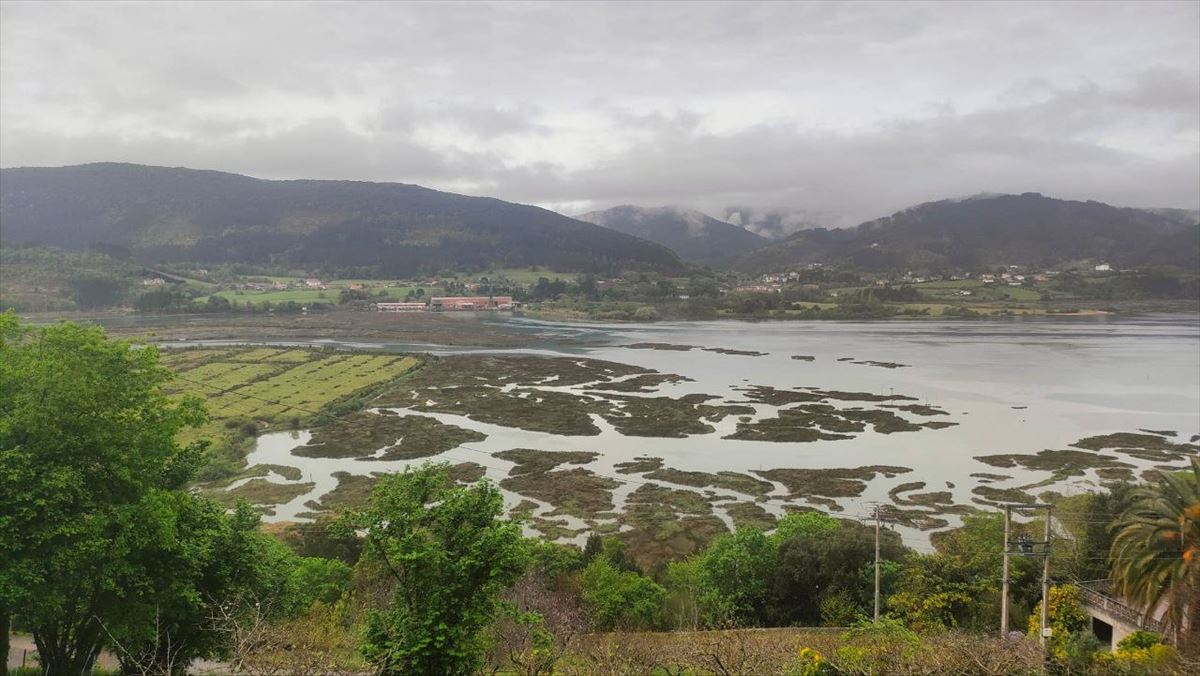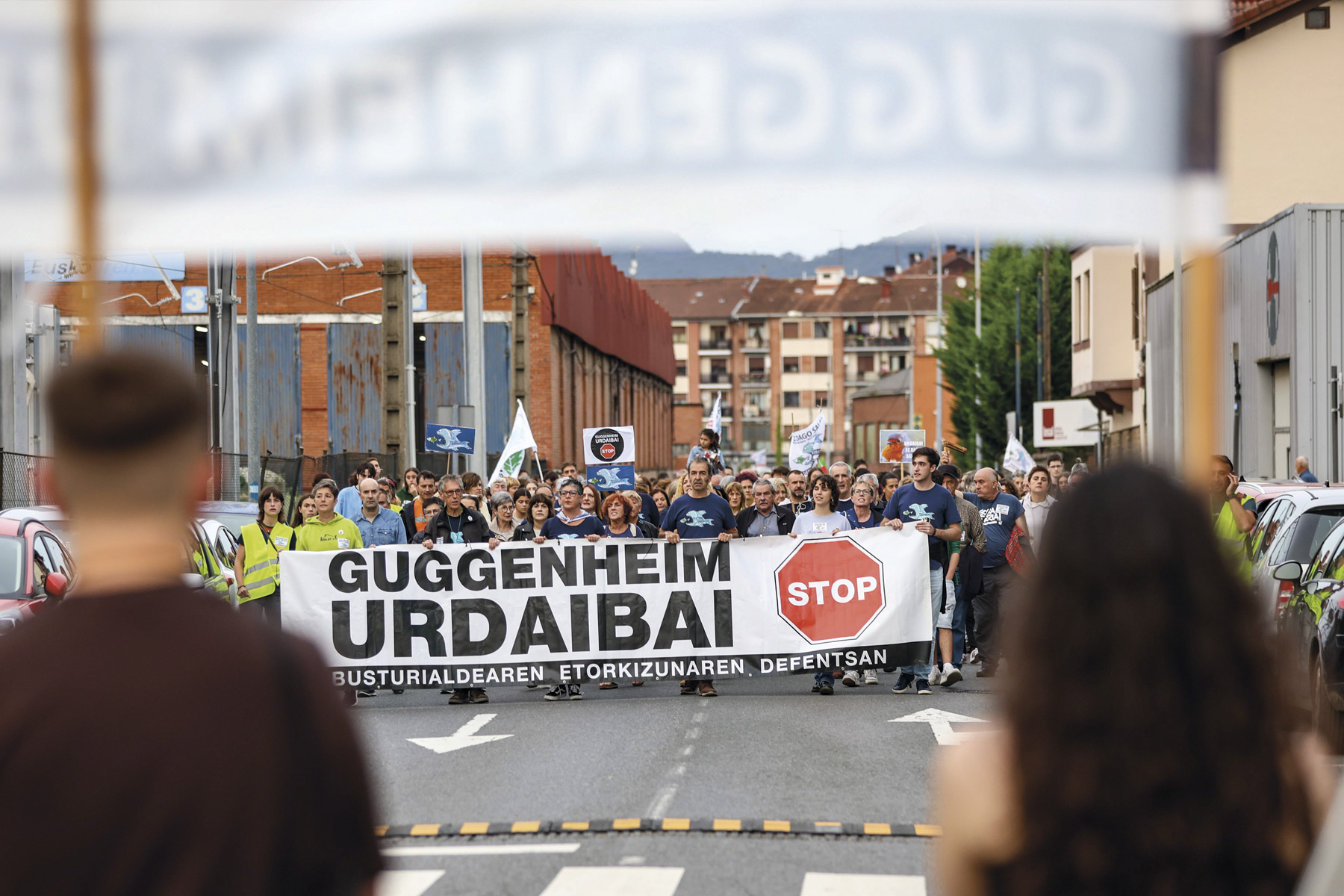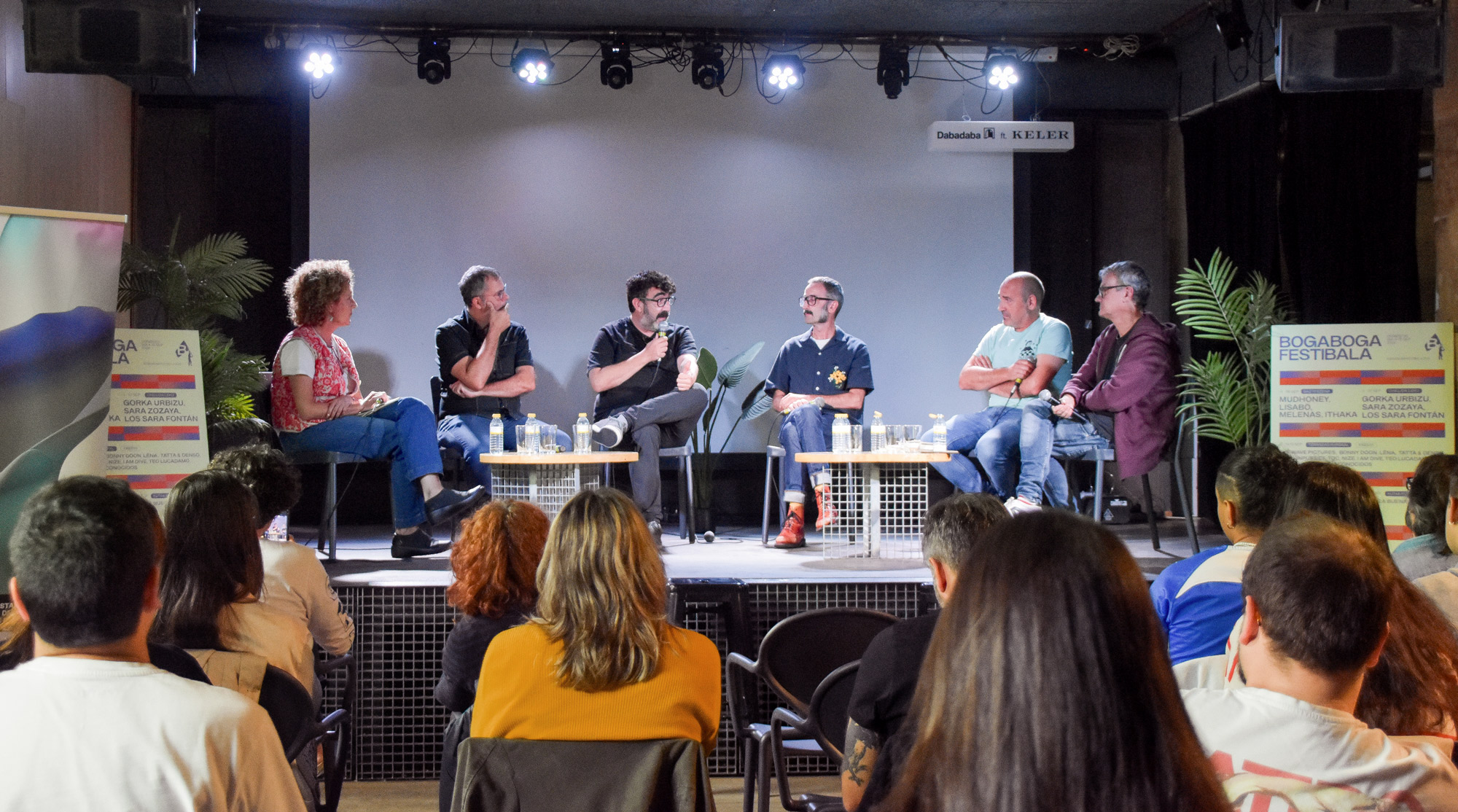Obstacles to creation in the cultural city
- The creative space Kontenedora, located in the Amara district of San Sebastian, has not been the first best year: it has been closed for nine months run over by bureaucracy. They expose the obstacles imposed by the City Hall. After working between lawyers and architects, they seem to be near reopening. They want to open the doors to all kinds of artists and the arts interested to work creativity critically and be an abrasive space. To bite a person.

Eighth of Sancho el Sabio, in San Sebastián. In other words, and using the words of the interlocutors, “in the place of passage”, between the center and the football stadium, on the axis of the road access to the hospital. There it is, or at this point “was”, because the space of the artists Kontenedora is closed. Public works prevent progress.
To describe the area between Amara and Anoeta they have not used the word anything, as it is a place where shops and the flow of people and cars are located, but they have said that this is an environment that long ago remained outside the postcards. “And that, moreover, that Anoeta is here next door and that moves the crowd, especially in these years when Real is doing good seasons,” adds an interlocutor. Another, so anxious to differentiate the tone, wanted to nullify the idea that the area has been left out of the postcards: “When we say that this axis is outside the postcards, all respect to Txomin, Martutene and other neighborhoods.”
Behind all this, everyone has highlighted an idea: “Ultracentrification” of San Sebastian. Taking the squadron and the cartabon in an imaginary way, an interlocutor has marked the limits of the centrification on the map of the city: From the Cathedral of the Good Shepherd to the Old Town, from the Easo Square to the Ribera, and taking Gros roughly, “Donostia de postcards”. He adds: “What is happening here is exajerted.”
What has been said so far would surprise a few readers, since in one way or another it has been expressed in several pages. Well, leaving this centrification, from Easo Square to the football stadium, taking a venue from Sancho el Sabio Avenue, the artists who wanted to leave the "traditional schemes" began to organize themselves differently.
Asked about their characteristics, they have all highlighted self-management, interaction and creative freedom. “It is the relationship between many people who come from multiple branches to grow together, a cultural and artistic project because culture is a people.”
.jpg)
Tuesday's lentils are Culture
as a concept, and in any conversation in which the terms San Sebastian and San Sebastián cross as an urban model, it is impossible not to mention the European cultural capital of San Sebastián 2016. “It was a phenomenon,” they say.
When the subject comes up, a phenomenon is how people take their hands to their heads almost always. Few can say that this ambitious project met its cultural objectives. As Barcelonan anthropologist Manuel Delgado said in 2015, then only “culture as an excuse” was used, only as a “hook”, to launch the touristic fishing network to the sea, even more so. Xalba Ramírez received these and more statements in Irutxuloko Hitza in a magnificent report.
These words of Delgado are closely related to the idea that a Kontenedo interlocutor has put on the table: “Kontenedora is a space of Donostian cultural creation.” And dig deeper into the concept: “Imagine if your father said that in the kitchen he helps your mother, but actually he only does the paella on Sunday. That's Donostia. Zinemaldia, Jazzaldia, Horror Film Week... But on a Tuesday, what offer is there in the city? Anyone who is interested in culture, leaving cars, has nothing in San Sebastian. That’s why we’ve gone out a lot.”
.jpg)
The Kontenedora area is another attempt to bring foreign experiences to the Basque Country. The association consists of artists who look “out of the system” and finance the venue through partners. They believe that in its scope the vertical form of operation should be already revolutionized and, in some way, take steps towards the philosophical paradigm Rizoma: “No one can be sending because there is no one who knows everything or has an absolute truth. It is also a very patriarchal model. In our ways, we believe that anyone can influence and divert the direction of the project. Culture cannot be sown from top to bottom, culture is made from bottom. That is why we have mentioned before that culture belongs to the people. Our model is to apply tolerance to differences.”
Their goal is to make culture from the people and the people, but to do things under the bureaucracy meant that they were creating a partnership, looking for partners and spreading them only to partners. In this sense, it is, therefore, a space dedicated exclusively to the partners, which we could say is private, but which have performed many actions outside the premises, “because contemporary culture needs the street”. Bukowski, Dabadaba and Drop are examples of this. Literary representations, theatres, concerts, art exhibitions and other activities have been organized in these spaces.
.jpg)
WITHOUT GODPARENTS. "There are three political axes in Euskal Herria and we are not in the cultural line of any of them: neither the PNV, nor the PSE, nor the Abertzale left. Of course, the most interesting projects have been carried out and are carried out in line with the latter, and it is all very well, but, to put it clearly, they always have other political support. Those who organize themselves outside these three axes have more difficulties along the way."
Twelve months, nine closed They have been able to open
in such a short time, but they have achieved over 700 partners. “It’s for something, because people were hungry for these kinds of spaces,” the interlocutors say.
The space was closed at the time of the interview by municipal order. They are caught in the grip of bureaucracy, although they are optimistic in the short term.
Following the presentation of the plans and permits of the premises, the opening ceremony was held on St. Thomas Day 2022. A month later, after the complaint of a neighbor, who was drinking and smoking in the outside patio, the Municipal Guard appeared on the premises and asked for a “leave of action”. They were shocked because they had not been asked before.
The following day they went to the City Hall to request information, but Kontenedora members say they have not yet known exactly what that license is. They even say it doesn't exist, surprised. In fact, in associations similar to those they know, they have asked about this “ditxosa license” and nobody knows anything.
“A municipal technician is asking us until the last day for a document that doesn’t know very well what it is,” their interlocutors explain. One day, following the recommendation of the members of other associations consulted, presented in the City Hall the “notification of the actions”. That is, rather than licensing, notification. And then they were able to open -- because notification, in fact, is a notification document that is going to open it. Three days were the agents. “And to start again, it’s a joke.”
According to the members of the Consortium, they feel that the City Hall does not want such a place in the city, although many people think that it does not do night work. They undertake to close the space to a maximum of ten in the evening. “I understand that I don’t have permission to do concerts. But a dozen people get together with a sunset, grab an acoustic guitar and sing, is it a concert?” According to the interviewees, the City Hall of San Sebastian has focused on these types of points: for selling beer cans in a euro, they have been accused of “bar character”; for making pintxos and eating among attendees, “restaurant character”; and for organizing film screenings.

With the aim of contributing
"Also in tourism", an interlocutor, citing Berlin, San Francisco and other more international ones, has pointed out that there is underground cultural tourism in them. "Why not in Donostia? you said. "A slightly utopian idea," the other answered and laughed.
They have neither political intention nor conflict with the City Hall, so they do not think they are asked too much, they sincerely say: "Do we think there is at least one area entitled to develop Kontenedora peacefully? ".
They stress that they have joined the street culture and free creation, rather than hindering anyone. On the return, however, they have received only hindrances in the town where they acquired the cultural capital. But they've also been very fond of people, they stay with it.
DEMOCRACY? "We believe we are a developed and democratic country, and we say so with pride, but public space is not at all democratic. Nothing can be done without the authorization of the City Council or Municipal Police. We must follow a series of guidelines that they have set themselves, both to make an artistic spectacle on the street and, of course, to apply for subsidies. Nothing that does not comply with the current policy directive cannot be organised."
Two words in Tabakalera
There is no enmity with what is the cache of San Sebastian in the contemporary era of cultural policies. Moreover, the members of the Contenedo have collaborated with Tabakalera, both collectively and individually, and they are clear that they will continue to do so. No problem in this regard. And they'd also like Tabakalera to keep working, because they're not anti-systems as many can see. "It's absurd to say. Everything that is defined as anti-system dreams of a system; all forms would be systems."
They have also made an effort to look at the bad for themselves: "Let us hope that the institutions will continue to finance Tabakalera and that this bag will not be used to further finance Aperribay companies. It would be bad news, if not."
Puncturing is given by the way and objectives of operation: "What we would like is for Tabakalera policies to be managed by a person with a certain cultural perspective and instincts and ideas." We could say that the lentil metaphor of Tuesday that we mentioned in the report goes down that road.
And it's that, among other things, these kinds of cultural elephants have talked about flags that they want to whip, because the "culture of the masses," at least, is trying to guide people from somewhere. "When Tabakalera performs cultural activities, for example, if it does so with feminist premises, it is possible that these premises are established under the pressure of society, always with calculations made. We do feminist actions because we are feminists."
Finally, regarding the influence and capacity of influence and mobility of people, they have given a pride sentence of the Kontenedora project, returning to the lentil metaphor of Tuesday. "It is true that Tabakalera organizes things throughout the week, but if a Tuesday night brings together 25 people, half of them have entered the outside because it is raining and cold. In poetic acts we have gathered a hundred people, lucky for us, but also thoughtful. There's the evil that San Sebastian is."

Poetry attack
Literally poetic attack. And taking the explanations of the interlocutors literally, the bottom line is: "Nobody owns the idea."
Poetry attack or "poetry recitals" has already held several sessions at the bar Le Bukowski in Egia. Typically the poster consists of four or five members, but the representation is not limited to them. They have a responsibility to energize and to have someone or who bear responsibility, but they claim that the microphone is people's. Anyone can go up and recite their words. Without notice. "The microphone is also open to which four lines have been folded at the time."
It aims to promote values and values such as: "If the audience has the chance to go onstage, we go back to class and difference. Nobody has the last word, nobody is the sole owner of the word."
Satisfied with the response of the project, they express their intention to double the sessions.
We have known Aitor Bedia Hans, a singer of the Añube group for a long time. At that time we were reconciled with BEÑAT González, former guitarist of the Añube group. It was at the university time, when the two young people of Debagoiena came to Bilbao to study with music in... [+]
Two years ago Urdaibai Guggenheim Stop! Since the creation of the popular platform, Urdaibai is not for sale! We hear the chorus everywhere. On 19 October we met thousands of people in Gernika to reject this project and, in my opinion, there are three main reasons for opposing... [+]
With this article, the BDS movement wants to make a public boycott of the event to be held on 24 September at the Guggenheim in Bilbao. In it, they will have the presence of the renowned Zionist artist, Noa, who will present his last record work.
When, in the context of the... [+]
Mende batean, Baionako Euskal Museoak izan duen bilakaeraz erakusketa berezia sortu dute. Argazki, tindu edo objektuak ikusgai dira. 1924an William Boissel Bordaleko militarrak bultzatu zuen museoaren sorrera, "euskal herri tradizionalaren" ondarea babesteko... [+]









